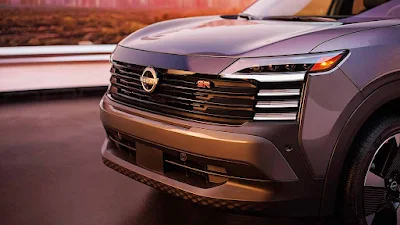Nissan isn’t ready to end development of its internal combustion engines just yet; that’s according to Chief Product Officer Ivan Espinosa who spoke to members of the Philippine media ahead of the Formula E Tokyo e-Prix.
Under The Arc—the bridge between Nissan’s two long-term plans of Nissan Next (2019 to 2023) and Nissan Ambition 2030 (2023 to 2030)—Espinosa sees the role of e-Power increasing in the brand’s electrification strategy. In fact, he sees it as an important pillar moving forward. It’s a reversal of roles of sorts for the serial hybrid tech given that previously, it was seen as a stepping stone towards pure battery electric vehicles or BEVs.
Espinosa explains that the adoption of BEVs has been progressing at different rates around the world. There are some markets such as Western Europe and China where BEVs have reached a tipping point. In these markets, sales of BEVs have reached five percent or more, signaling the start of mass adoption.
However, in other markets, including the Philippines, where BEVs have yet to reach critical mass (and there are other challenges such as charging infrastructure), Espinosa concedes that e-Power could become a more palatable option.
Because of this, Nissan cannot turn their back on internal combustion development just yet. However, their role will have electrification in mind because in an e-Power setup, the gasoline engine is used as a generator to charge the on-board lithium-ion battery (the engine has no direct connection to the drive wheels).
Having said that, Espinosa says diesel may have run its course. He cites Thailand, which used to be a strong diesel market in ASEAN, as a quick adopter of electrified and BEV powertrains. Although they will continue to update their existing diesel engine line-up to meet the stringent Euro 6 emissions requirements, engineering a diesel engine to meet Euro 7 emissions standards “will be very difficult.”
On the plus side, Espinosa continues that thanks to e-Power, Nissan’s upcoming powertrain technology will have a lot of commonalities with each other. He reckons that 30 percent of electrical components—drive motors, electronic controllers, and the like—can be shared between the brand’s BEVs and e-Power vehicles by 2026. Meanwhile, the same gas generator can be deployed as a standalone engine for select markets or segments.
By 2030, Nissan will launch 34 electrified models, and out of this number, 40 percent will be BEVs, while 20 percent will be either e-Power or PHEVs. In total, they have high hopes to reach 1.2 million global e-Power sales by then.


Nissan to continue development of combustion engines with Honda?
ReplyDeleteI hope Nissan can improve on their build quality and reliability. I am very disappointed at how my Kicks is falling apart after just two years of ownershup
ReplyDeleteNow I know why the Kicks did not win car of the year back then.
DeleteICE that is flexible in terms of fuel use either petrol or hydrogen. More efficient ICE for hybrid system like the e-power setup.
ReplyDeleteIt's either stay ICE in buying cars or full EV don't be dragged into Japs push for hybrids. It's foolish. Doesn't makes sense in buying a more complex drive train. More parts means more maintenance headache. Determine your needs if it's for city driving only then buy full EV. If it's normally long distance then buy ICE. For second car purchases full EV should be fully in consideration.
ReplyDeleteit seems no one believes in you around the world. a third of 10M toyota 2023 car sales were hybrids
DeleteUmm what? It should be either ICE or hybrids (mild, full, phev). Its EVs that are foolish with all the electronics, half car half appliances.
Delete